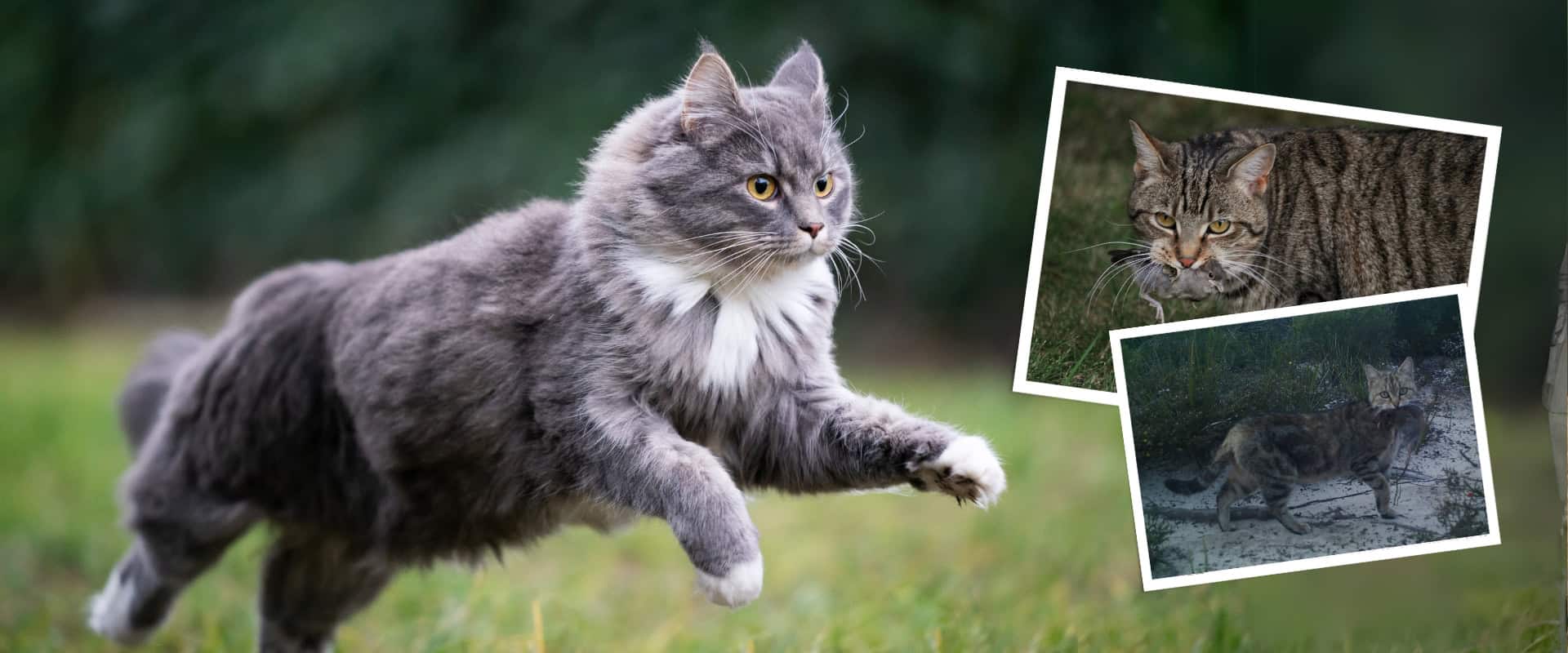
cat-containment-nsw 2025
340 million native mammals, birds and reptiles are killed by roaming pet cats every year in Australia. We can’t change the nature of cats, but we can change the culture that allows pet cats to roam and kill.

340 million native mammals, birds and reptiles are killed by roaming pet cats every year in Australia. We can’t change the nature of cats, but we can change the culture that allows pet cats to roam and kill.

The risks of the high pathogenicity avian influenza (HPAI) arriving in Australia and causing mass mortality of native birds and mammals are likely to have increased.

340 million native mammals, birds and reptiles are killed by roaming pet cats every year in Australia. We can’t change the nature of cats, but we can change the culture that allows pet cats to roam and kill.
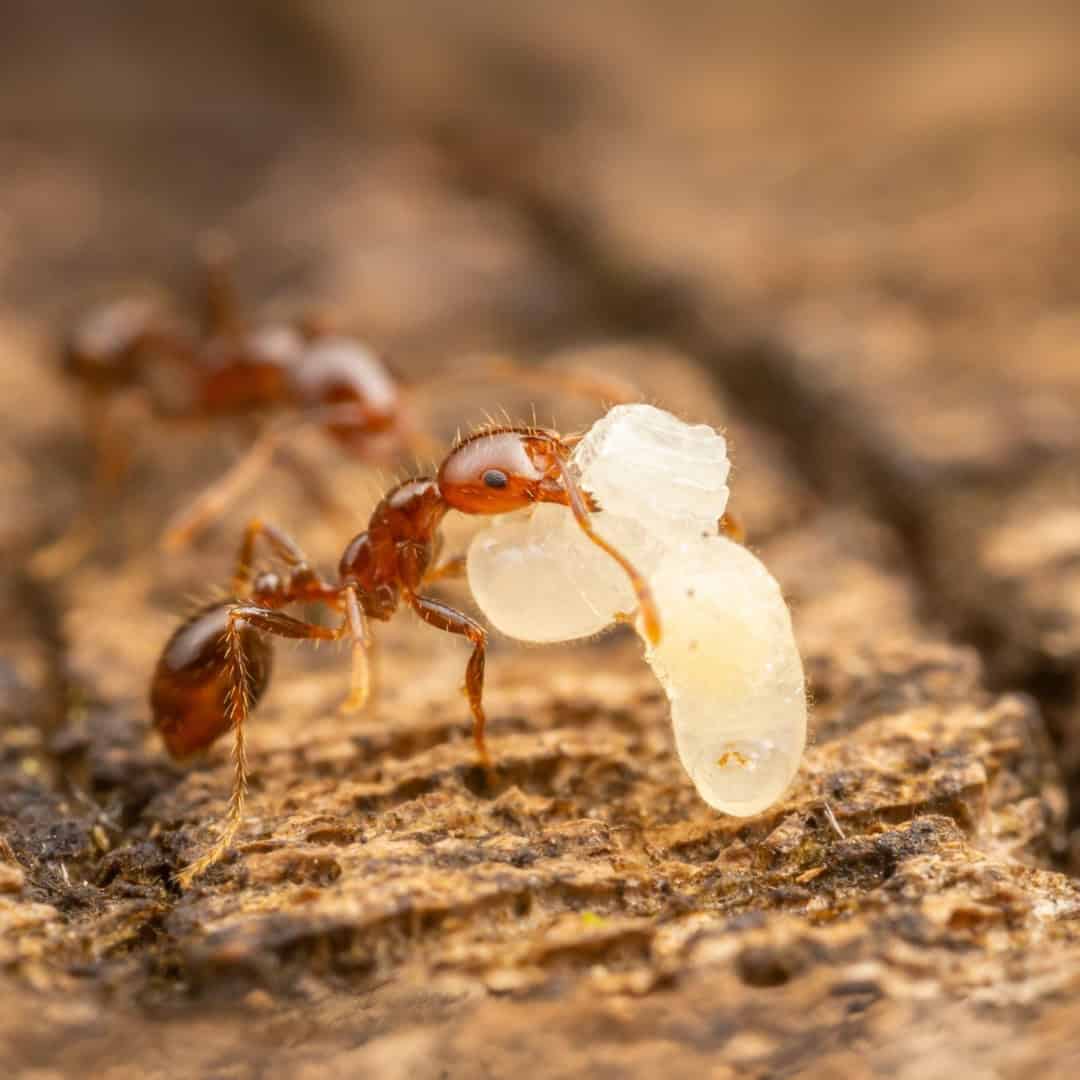
A burning threat is spreading. Fire ants build their mounds like markers of invasion, pushing out native species, blinding and killing small wildlife, and turning healthy landscapes into colonies of fear. They creep through gardens, wetlands and paddocks, multiplying faster than we can respond. Ignore them now, and they will reshape Australia forever.
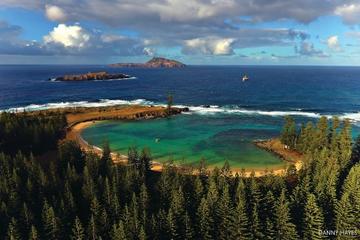
Investing in prevention and early action are always the most cost-effective and damage mitigating approach to invasive species, but the current level of funding allocated to environmental biosecurity priorities is insufficient and this is costing Australia.
Your message of thanks will show that NSW stands with nature – and that protecting Kosciuszko must remain a political priority.
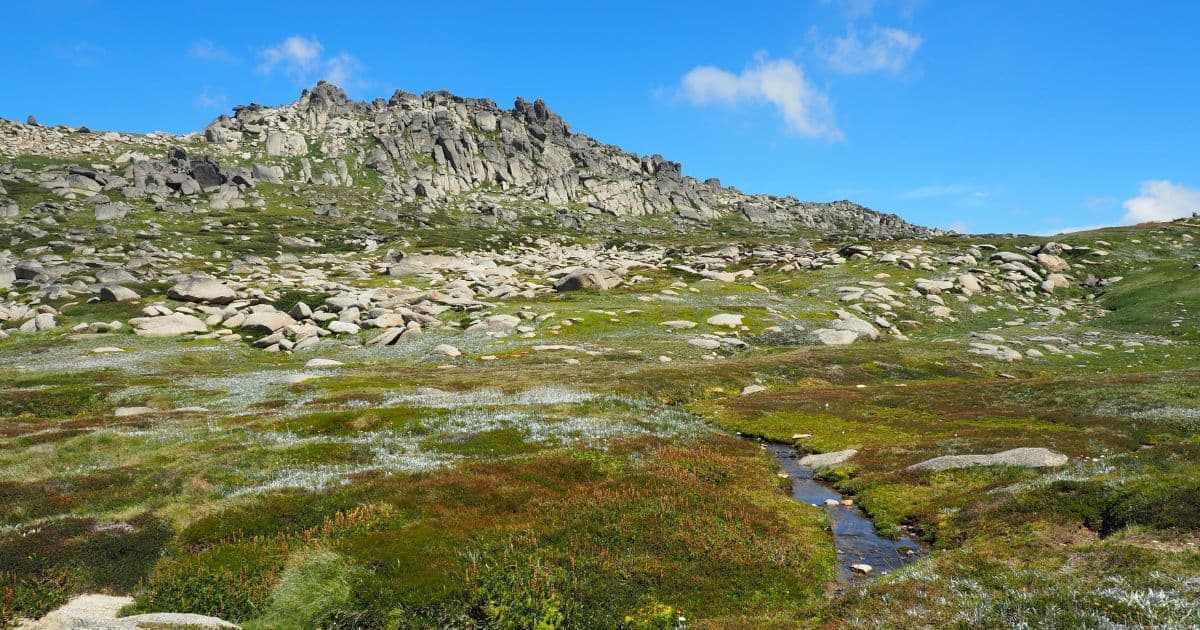
Feral horses are trashing and trampling alpine waterways and pushing native wildlife closer to extinction. Tell your NSW MP to end special protections for invasive species.
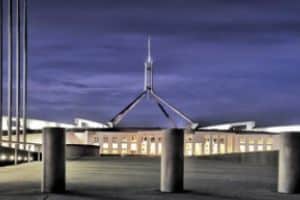
The Invasive Species Council recommends that the Gene Technology Regulator refuses the application for a licence to conduct a field trial of perennial ryegrass genetically modified for increased metabolisable energy content. We strongly disagree with the assessment that the ‘risks to the environment from the proposed release are negligible’.
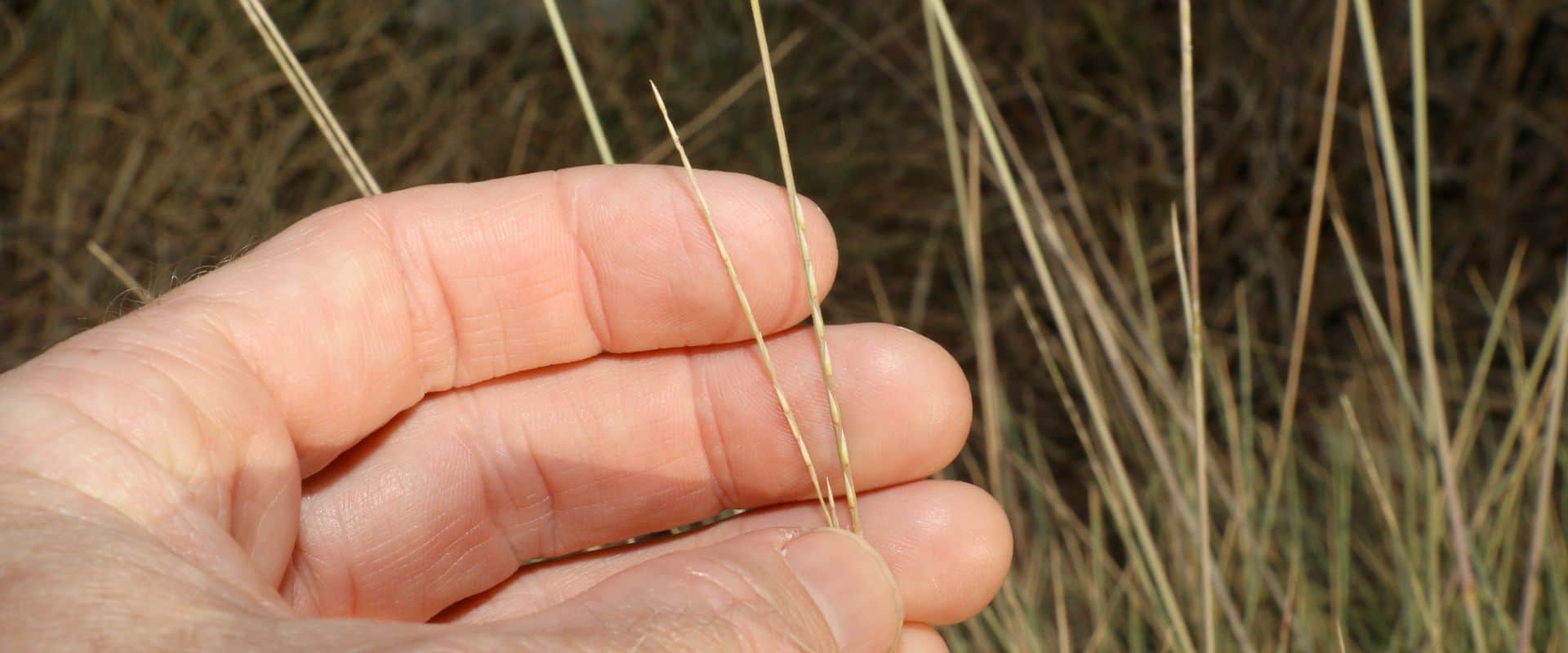
Across the heart of our continent, a dull straw-green tide is taking over. Buffel grass, Tjanpi kura (bad grass), Mama Tjunpi (devil grass) is transforming our deserts into dangerous monocultures that burn hotter, faster, and more often. It’s spreading through songlines and sacred sites, choking waterways, and leaving dust where there was once life.
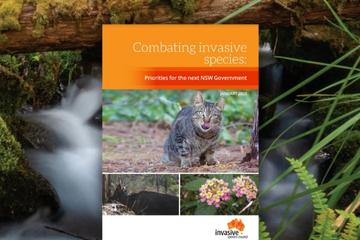
We face a crisis and current measures and resources in NSW are insufficient to halt and mitigate the impact of established invasive species and prevent the arrival and spread of new invasive species. In this document we detail priority actions the next NSW government can take that will strengthen the NSW biosecurity system and address priority environmental threats from invasive species.

Across the heart of our continent, a dull straw-green tide is taking over. Buffel grass, Tjanpi kura (bad grass), Mama Tjunpi (devil grass) is transforming our deserts into dangerous monocultures that burn hotter, faster, and more often. It’s spreading through songlines and sacred sites, choking waterways, and leaving dust where there was once life.

Feral deer in Tasmania have been increasing in numbers and distribution at an alarming rate, with the current population likely exceeding 100,000 and covering 27% of the State. This ever expanding population now threatens Tasmania’s unique and outstanding natural and cultural values along with highly valued agriculture and forestry.

Across the heart of our continent, a dull straw-green tide is taking over. Buffel grass, Tjanpi kura (bad grass), Mama Tjunpi (devil grass) is transforming our deserts into dangerous monocultures that burn hotter, faster, and more often. It’s spreading through songlines and sacred sites, choking waterways, and leaving dust where there was once life.
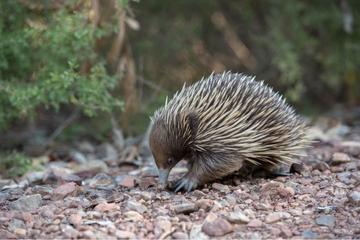
The Invasive Species Council welcomes the opportunity to provide comments on options for sustainable funding and investment to strengthen biosecurity.
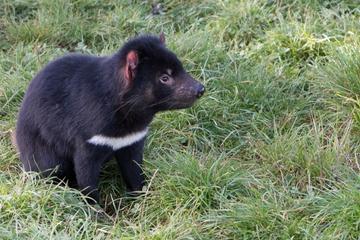
The Invasive Species Council welcomes the opportunity to provide a submission into the draft of Tasmania’s Biosecurity Strategy 2022-2027. The draft strategy is a well developed document, and shows that Tasmania takes biosecurity seriously, and considers all components as important.

340 million native mammals, birds and reptiles are killed by roaming pet cats every year in Australia. We can’t change the nature of cats, but we can change the culture that allows pet cats to roam and kill.

The risks of the high pathogenicity avian influenza (HPAI) arriving in Australia and causing mass mortality of native birds and mammals are likely to have increased.

340 million native mammals, birds and reptiles are killed by roaming pet cats every year in Australia. We can’t change the nature of cats, but we can change the culture that allows pet cats to roam and kill.

A burning threat is spreading. Fire ants build their mounds like markers of invasion, pushing out native species, blinding and killing small wildlife, and turning healthy landscapes into colonies of fear. They creep through gardens, wetlands and paddocks, multiplying faster than we can respond. Ignore them now, and they will reshape Australia forever.

Investing in prevention and early action are always the most cost-effective and damage mitigating approach to invasive species, but the current level of funding allocated to environmental biosecurity priorities is insufficient and this is costing Australia.
Your message of thanks will show that NSW stands with nature – and that protecting Kosciuszko must remain a political priority.

Feral horses are trashing and trampling alpine waterways and pushing native wildlife closer to extinction. Tell your NSW MP to end special protections for invasive species.

The Invasive Species Council recommends that the Gene Technology Regulator refuses the application for a licence to conduct a field trial of perennial ryegrass genetically modified for increased metabolisable energy content. We strongly disagree with the assessment that the ‘risks to the environment from the proposed release are negligible’.

Across the heart of our continent, a dull straw-green tide is taking over. Buffel grass, Tjanpi kura (bad grass), Mama Tjunpi (devil grass) is transforming our deserts into dangerous monocultures that burn hotter, faster, and more often. It’s spreading through songlines and sacred sites, choking waterways, and leaving dust where there was once life.

We face a crisis and current measures and resources in NSW are insufficient to halt and mitigate the impact of established invasive species and prevent the arrival and spread of new invasive species. In this document we detail priority actions the next NSW government can take that will strengthen the NSW biosecurity system and address priority environmental threats from invasive species.

Across the heart of our continent, a dull straw-green tide is taking over. Buffel grass, Tjanpi kura (bad grass), Mama Tjunpi (devil grass) is transforming our deserts into dangerous monocultures that burn hotter, faster, and more often. It’s spreading through songlines and sacred sites, choking waterways, and leaving dust where there was once life.

Feral deer in Tasmania have been increasing in numbers and distribution at an alarming rate, with the current population likely exceeding 100,000 and covering 27% of the State. This ever expanding population now threatens Tasmania’s unique and outstanding natural and cultural values along with highly valued agriculture and forestry.

Across the heart of our continent, a dull straw-green tide is taking over. Buffel grass, Tjanpi kura (bad grass), Mama Tjunpi (devil grass) is transforming our deserts into dangerous monocultures that burn hotter, faster, and more often. It’s spreading through songlines and sacred sites, choking waterways, and leaving dust where there was once life.

The Invasive Species Council welcomes the opportunity to provide comments on options for sustainable funding and investment to strengthen biosecurity.

The Invasive Species Council welcomes the opportunity to provide a submission into the draft of Tasmania’s Biosecurity Strategy 2022-2027. The draft strategy is a well developed document, and shows that Tasmania takes biosecurity seriously, and considers all components as important.

340 million native mammals, birds and reptiles are killed by roaming pet cats every year in Australia. We can’t change the nature of cats, but we can change the culture that allows pet cats to roam and kill.

The risks of the high pathogenicity avian influenza (HPAI) arriving in Australia and causing mass mortality of native birds and mammals are likely to have increased.

340 million native mammals, birds and reptiles are killed by roaming pet cats every year in Australia. We can’t change the nature of cats, but we can change the culture that allows pet cats to roam and kill.

A burning threat is spreading. Fire ants build their mounds like markers of invasion, pushing out native species, blinding and killing small wildlife, and turning healthy landscapes into colonies of fear. They creep through gardens, wetlands and paddocks, multiplying faster than we can respond. Ignore them now, and they will reshape Australia forever.

Investing in prevention and early action are always the most cost-effective and damage mitigating approach to invasive species, but the current level of funding allocated to environmental biosecurity priorities is insufficient and this is costing Australia.
Your message of thanks will show that NSW stands with nature – and that protecting Kosciuszko must remain a political priority.

Feral horses are trashing and trampling alpine waterways and pushing native wildlife closer to extinction. Tell your NSW MP to end special protections for invasive species.

The Invasive Species Council recommends that the Gene Technology Regulator refuses the application for a licence to conduct a field trial of perennial ryegrass genetically modified for increased metabolisable energy content. We strongly disagree with the assessment that the ‘risks to the environment from the proposed release are negligible’.

Across the heart of our continent, a dull straw-green tide is taking over. Buffel grass, Tjanpi kura (bad grass), Mama Tjunpi (devil grass) is transforming our deserts into dangerous monocultures that burn hotter, faster, and more often. It’s spreading through songlines and sacred sites, choking waterways, and leaving dust where there was once life.

We face a crisis and current measures and resources in NSW are insufficient to halt and mitigate the impact of established invasive species and prevent the arrival and spread of new invasive species. In this document we detail priority actions the next NSW government can take that will strengthen the NSW biosecurity system and address priority environmental threats from invasive species.

Across the heart of our continent, a dull straw-green tide is taking over. Buffel grass, Tjanpi kura (bad grass), Mama Tjunpi (devil grass) is transforming our deserts into dangerous monocultures that burn hotter, faster, and more often. It’s spreading through songlines and sacred sites, choking waterways, and leaving dust where there was once life.

Feral deer in Tasmania have been increasing in numbers and distribution at an alarming rate, with the current population likely exceeding 100,000 and covering 27% of the State. This ever expanding population now threatens Tasmania’s unique and outstanding natural and cultural values along with highly valued agriculture and forestry.

Across the heart of our continent, a dull straw-green tide is taking over. Buffel grass, Tjanpi kura (bad grass), Mama Tjunpi (devil grass) is transforming our deserts into dangerous monocultures that burn hotter, faster, and more often. It’s spreading through songlines and sacred sites, choking waterways, and leaving dust where there was once life.

The Invasive Species Council welcomes the opportunity to provide comments on options for sustainable funding and investment to strengthen biosecurity.

The Invasive Species Council welcomes the opportunity to provide a submission into the draft of Tasmania’s Biosecurity Strategy 2022-2027. The draft strategy is a well developed document, and shows that Tasmania takes biosecurity seriously, and considers all components as important.
Get our blog the Feral Herald delivered to your inbox.
Our protected areas are being trashed, trampled, choked and polluted by an onslaught of invaders. Invasive species are already the overwhelming driver of our animal extinction rate, and are expected to cause 75 of the next 100 extinctions.
But you can help to turn this around and create a wildlife revival in Australia.
From numbats to night parrots, a tax-deductible donation today can help defend our wildlife against the threat of invasive weeds, predators, and diseases.
As the only national advocacy environment group dedicated to stopping this mega threat, your gift will make a big difference.
A silent crisis is unfolding across Australia. Every year, billions of native animals are hunted and killed by cats and foxes. Fire ants continue to spread and threaten human health. And the deadly strain of bird flu looms on the horizon. Your donation today will be used to put the invasive species threat in the media, make invasive species a government priority, ensure governments take rapid action to protect nature and our remarkable native wildlife from invasives-led extinction, death and destruction.
If you are having trouble submitting a form, please read this guide.
Please fill out the following form and one of our team will be in contact to assist as soon as possible. Please make sure to include any helpful information, such as the device you were using (computer, tablet or mobile phone) and if known, your browser (Mozilla Firefox, Chrome, Safari etc)
"*" indicates required fields
Dear Project Team,
[YOUR PERSONALISED MESSAGE WILL APPEAR HERE.]
I support the amendment to the Kosciuszko National Park Wild Horse Heritage Management Plan to allow our incredible National Parks staff to use aerial shooting as one method to rapidly reduce feral horse numbers. I want to see feral horse numbers urgently reduced in order to save the national park and our native wildlife that live there.
The current approach is not solving the problem. Feral horse numbers have rapidly increased in Kosciuszko National Park to around 18,000, a 30% jump in just the past 2 years. With the population so high, thousands of feral horses need to be removed annually to reduce numbers and stop our National Park becoming a horse paddock. Aerial shooting, undertaken humanely and safely by professionals using standard protocols, is the only way this can happen.
The government’s own management plan for feral horses states that ‘if undertaken in accordance with best practice, aerial shooting can have the lowest negative animal welfare impacts of all lethal control methods’.
This humane and effective practice is already used across Australia to manage hundreds of thousands of feral animals like horses, deer, pigs, and goats.
Trapping and rehoming of feral horses has been used in Kosciuszko National Park for well over a decade but has consistently failed to reduce the population, has delayed meaningful action and is expensive. There are too many feral horses in the Alps and not enough demand for rehoming for it to be relied upon for the reduction of the population.
Fertility control as a management tool is only effective for a small, geographically isolated, and accessible population of feral horses where the management outcome sought is to maintain the population at its current size. It is not a viable option to reduce the large and growing feral horse population in the vast and rugged terrain of Kosciuszko National Park.
Feral horses are trashing and trampling our sensitive alpine ecosystems and streams, causing the decline and extinction of native animals. The federal government’s Threatened Species Scientific Committee has stated that feral horses ‘may be the crucial factor that causes final extinction’ for 12 alpine species.
I recognise the sad reality that urgent and humane measures are necessary to urgently remove the horses or they will destroy the Snowies and the native wildlife that call the mountains home. I support a healthy national park where native species like the Corroboree Frog and Mountain Pygmy Possum can thrive.
Dear Project Team,
[YOUR PERSONALISED MESSAGE WILL APPEAR HERE.]
I support the amendment to the Kosciuszko National Park Wild Horse Heritage Management Plan to allow our incredible National Parks staff to use aerial shooting as one method to rapidly reduce feral horse numbers. I want to see feral horse numbers urgently reduced in order to save the national park and our native wildlife that live there.
The current approach is not solving the problem. Feral horse numbers have rapidly increased in Kosciuszko National Park to around 18,000, a 30% jump in just the past 2 years. With the population so high, thousands of feral horses need to be removed annually to reduce numbers and stop our National Park becoming a horse paddock. Aerial shooting, undertaken humanely and safely by professionals using standard protocols, is the only way this can happen.
The government’s own management plan for feral horses states that ‘if undertaken in accordance with best practice, aerial shooting can have the lowest negative animal welfare impacts of all lethal control methods’.
This humane and effective practice is already used across Australia to manage hundreds of thousands of feral animals like horses, deer, pigs, and goats.
Trapping and rehoming of feral horses has been used in Kosciuszko National Park for well over a decade but has consistently failed to reduce the population, has delayed meaningful action and is expensive. There are too many feral horses in the Alps and not enough demand for rehoming for it to be relied upon for the reduction of the population.
Fertility control as a management tool is only effective for a small, geographically isolated, and accessible population of feral horses where the management outcome sought is to maintain the population at its current size. It is not a viable option to reduce the large and growing feral horse population in the vast and rugged terrain of Kosciuszko National Park.
Feral horses are trashing and trampling our sensitive alpine ecosystems and streams, causing the decline and extinction of native animals. The federal government’s Threatened Species Scientific Committee has stated that feral horses ‘may be the crucial factor that causes final extinction’ for 12 alpine species.
I recognise the sad reality that urgent and humane measures are necessary to urgently remove the horses or they will destroy the Snowies and the native wildlife that call the mountains home. I support a healthy national park where native species like the Corroboree Frog and Mountain Pygmy Possum can thrive.